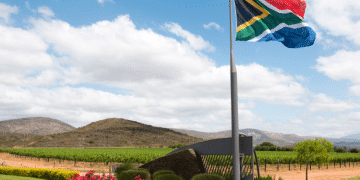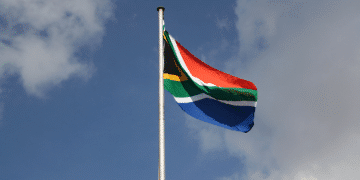Top African Universities 2025: Complete Rankings and Performance Guide
Overview of African University Rankings 2025
Comprehensive Assessment by Times Higher Education
The Times Higher Education’s World University Rankings and the Sub-Saharan Africa University Rankings have meticulously assessed the top universities across 19 African countries.
This comprehensive assessment provides vital insights into the strengths and potential of African higher education in various parameters.
Dominance of Egypt and Algeria
Egypt and Algeria are standout countries in this year’s rankings, leading with the highest number of institutions.
Egypt flaunts 35 universities, while Algeria follows closely with 26. This dominance not only highlights their strong university networks but also emphasizes their significant investment in higher education.
Methodology and Evaluation Criteria
The rankings are based on 18 key indicators that encompass a broad spectrum of university performance metrics.
These indicators include:
- ✅Teaching: Encompasses the learning environment and quality of instruction.
- ✅Research Environment: Evaluates the volume, income, and reputation of institutional research.
- ✅Research Quality: Includes metrics such as citation impact and research influence.
- ✅International Outlook: Measures the diversity of the staff, students and international collaborations.
- ✅Industry Impact: Assesses the potential for knowledge transfer and partnerships with industry.
By evaluating universities against these multifaceted dimensions, the rankings offer a holistic view of where each institution excels and the impact they generate both locally and globally.
Transition to Regional and National Contributions
Building on this overarching analysis, the subsequent sections will delve deeper into the contributions and standout performances of specific countries and universities.
Stay tuned as we explore the dominating presence of South African universities, and profiles of universities making significant strides not only in the African continent but also on the global stage, setting benchmarks for excellence and innovation.
South Africa’s Educational Dominance
South Africa’s educational institutions have firmly established their dominance within the African continent.
As highlighted in recent evaluations, half of the top 10 universities in Africa are based in South Africa.
These universities not only showcase excellence within the continent but also maintain a significant presence on the global stage, with 14 institutions ranked among the top 1000 worldwide.
Leading South African Universities
At the forefront of South Africa’s educational prowess is the University of Cape Town (UCT).
Renowned as Africa’s premier institution, UCT has gained recognition for its unwavering commitment to social transformation and promoting international diversity.
The university’s initiatives on addressing critical social issues and fostering an inclusive environment make it a prominent educational leader.
Following closely is Stellenbosch University, distinguished by its unique bilingual education system. Stellenbosch offers courses in both English and Afrikaans, catering to a diverse student body and maintaining academic flexibility.

This approach not only enhances the learning experience but also reflects South Africa’s rich linguistic heritage.
Another notable institution is the University of the Witwatersrand, commonly known as Wits University.
Renowned for its specialized focus on mining and medical education, Wits plays a crucial role in advancing these fields. Its historical significance as a protest site against apartheid policies underscores the university’s enduring commitment to social justice and equality.
Significant Institutional Representation
The prominence of South African universities in the global rankings is a testament to the country’s robust higher education system.
This extensive representation highlights the country’s dedication to advancing educational standards and fostering a conducive environment for research and innovation.
The achievements of these universities reflect broader educational trends across the continent.
With strong emphasis on teaching, research, and international collaboration, South Africa continues to pave the way for higher education in Africa.
The unparalleled success of South African universities sets a benchmark for other African institutions, encouraging them to strive for greater heights.
This chapter on South Africa’s educational dominance serves as an inspiring reminder of the potential that lies within African higher education institutions.
Top 5 Universities Profile
University of Cape Town
The University of Cape Town (UCT) stands as a beacon of academic excellence, cultural diversity, and social change.
Nestled at the foot of Table Mountain, UCT’s stunning backdrop is home to a thriving academic community.
Founded in 1829, UCT is South Africa’s oldest university and the second oldest in Africa.
UCT is renowned for its commitment to social transformation. This initiative addresses diversity, student opportunities, and inclusive behavior.
The institution’s dedication to equality and justice is reflected in its various “transformation” projects aimed at fostering an inclusive environment.
The university’s six faculties—commerce, engineering, health sciences, humanities, science, and law—offer a comprehensive education that balances theoretical knowledge with practical skills.
Additionally, the Graduate School of Business is highly regarded, operating independently from the commerce faculty and attracting a diverse international student body.
Stellenbosch University
Stellenbosch University, located in the picturesque town of Stellenbosch, about 50 kilometers from Cape Town, offers a unique educational model.
The university town is famous for its Dutch colonial architecture and vibrant cultural scene.
One of the distinctive features of Stellenbosch University is its bilingual approach to education.
Courses are offered in both Afrikaans and English, accommodating a diverse student population. For postgraduate studies, the medium of instruction is generally English, depending on the class demographics.
The university boasts ten faculties and around 150 academic departments, supported by a rich library system and various research centers.
Stellenbosch is also home to the South African Choir, the oldest in the country, adding a cultural flair to its academic environment.
University of the Witwatersrand
Commonly known as Wits University, the University of the Witwatersrand in Johannesburg has a storied history and a strong focus on research in specialized fields like mining and medicine.
Founded as a school of mining, Wits has grown substantially over the years and played a pivotal role during the apartheid era, serving as a haven for protest and social justice.
Wits University operates on five campuses, with facilities ranging from student residences to academic departments, and includes the renowned Wits Donald Gordon Medical Centre.
The university is structured into five faculties: commerce, law, management, engineering, health sciences, science, and humanities.
The Disability Rights Unit at Wits is a flagship center dedicated to making higher education accessible to all, showcasing the university’s commitment to inclusivity.
Mohamed VI Polytechnic University
While not in South Africa, Mohamed VI Polytechnic University in Morocco deserves mention for its impressive rise in the rankings.
Established in 2016, this not-for-profit institution focuses on sustainability and research. Located in Benguerir, the university is part of the Green City project, aimed at promoting sustainable urban development.
Academic offerings are organized into five clusters: science and technology, humanities, economics, social sciences, business, and medical fields.
This diverse range of disciplines supports the university’s mission to drive innovation and development in Morocco.
University of Johannesburg
The University of Johannesburg (UJ) is celebrated for its commitment to diversity and critical thinking.
UJ emphasizes a forward-thinking approach, addressing challenges from early childhood development to advanced technologies.
This diverse community benefits from global collaborations, which enhance both personal and academic growth.
UJ’s eight faculties cover various fields, from arts and culture to cutting-edge research, fostering an inclusive and innovative academic environment.
As we explore these leading institutions, their unique educational models and social commitments illustrate the dynamic landscape of higher education in Africa. Each university contributes to the continent’s rich tapestry of knowledge and growth.
Geographic Distribution and Diversity
When examining the diversity of universities across the African continent, one can’t help but be impressed by the geographical breadth and academic quality these institutions demonstrate.
The universities contributing to the rich tapestry of African higher education span from the eastern limits of Uganda to the western expanses of Nigeria.
It‘s a remarkable showcase of educational prowess and cultural variety that enriches each country’s unique academic landscape.
Diverse Geographic Footprint
The diverse geographic footprint of top-ranked universities is indicative of Africa’s broad academic network.
Countries such as Uganda, Nigeria, Morocco, and South Africa host some of these premier institutions, with reputable names that inspire both regional and global recognition.
Notable examples include Makerere University in Uganda, the prestigious University of Nigeria in Nsukka, and the globally recognized University of Cape Town in South Africa.
Morocco’s Academic Surge
Morocco has made significant strides in the academic realm, particularly with the rise of the Mohamed VI Polytechnic University.
Established in 2016, this institution has quickly ascended to the ranks of top African universities.
It’s part of a visionary project aimed at creating a model Green City that promotes sustainability and innovative research.
This focus on sustainability and innovative research has made a notable impact on Morocco’s educational standing within the continent and beyond.
Strength in Numbers
Several African countries have shown exceptional representation in global university rankings.
Egypt leads the pack with an extraordinary 35 universities, followed closely by Algeria’s 26 institutions.
This significant representation underscores the growing importance of higher education in these regions.
Countries such as Ghana, Nigeria, and Uganda also hold strong positions in the global rankings, each housing universities that cater to both local and international students.
pegue esse modelo abaixo e crie uma tabela com base nele usando as informações do texto a baixo
| ScenarioF | Before | After (Lifestyle Inflation) |
|---|---|---|
| 🚗 Car | Affordable and economical model | Luxury vehicle with high maintenance costs |
| 🍽 Food | Cooking at home | Frequent dining at expensive restaurants |
| 🏡 Housing | Modest house/apartment | Larger property in a more expensive neighborhood |
| 📱 Technology | Functional phone and gadgets | Frequent upgrades to the latest releases |
| 🎉 Entertainment | Budget-friendly and occasional options | Frequent travel and shopping sprees |
Innovation and Research Excellence
Focus on Sustainability at Mohamed VI Polytechnic University
Situated in the heart of Morocco, Mohamed VI Polytechnic University has rapidly emerged as a beacon of innovation and sustainability in Africa.
Founded in 2016, the university resides within the visionary Green City project, aimed at fostering sustainable urban development.
This diversified approach allows students and faculty to collaborate across disciplines, enriching their research and educational experiences.
The emphasis on sustainability permeates every aspect of the university’s functioning, from its infrastructural design to its curricular offerings, making it a leading institution in promoting environmentally responsible practices.
University of Johannesburg’s Emphasis on Diversity and Critical Thinking
The University of Johannesburg (UJ) stands out for its commitment to fostering diversity and promoting critical thinking.
Located in South Africa, UJ’s inclusive environment is home to a vibrant community of students and faculty from over 50 countries.
The university offers a wide array of programs across eight faculties, making it a comprehensive hub for higher education.
UJ’s academic philosophy encourages students to engage in critical thinking and collaborative problem-solving.
The university addresses diverse challenges through a plethora of research initiatives, ranging from early childhood development to innovative technological advancements.
This approach not only heightens academic rigor but also prepares students for real-world challenges.
Further, UJ’s emphasis on inclusivity and respect ensures a welcoming atmosphere for all students.
The university actively promotes respect and innovation, cultivating an environment where diverse perspectives are valued and encouraged.
Specialized Research Centers and International Collaborations
African universities are increasingly making their mark through specialized research centers and international collaborations.
Many institutions are at the forefront of cutting-edge research, working in tandem with global partners to drive innovation.
For instance, specialized research centers at various institutions focus on fields like healthcare, renewable energy, and digital technologies.
These centers often partner with international organizations, enabling a cross-pollination of ideas and fostering groundbreaking research.
Collaborations extend beyond research, influencing teaching methodologies and curricular designs.
By working with global partners, African universities can offer their students exposure to diverse teaching methods and cutting-edge content.
This international outlook not only enhances the quality of education but also prepares students for the global job market.
As we delve deeper into the unique strengths of African universities, it becomes clear that their commitment to innovation, research, and global collaboration positions them as key players in shaping the future of higher education.





